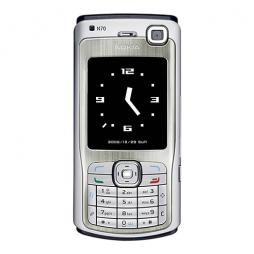mobile money transfers
Posted by EKStallings on Nov 11, 2011
Zap It To Me: The Short-Term Impacts of Mobile Cash Transfer Program data sheet 716 Views
Author:
Aker, Jenny C., Rachid Boumnijel, Amanda McClelland, Niall Tierney
Abstract:
Conditional and unconditional cash transfers have been effective in improving development outcomes in a variety of contexts, yet the costs of these programs to program recipients and implementing agencies are rarely discussed. The introduction of mobile money transfer systems in many developing countries offers new opportunities for a more cost-effective means of implementing cash transfer programs.
This paper reports on the first randomized evaluation of a cash transfer program delivered via the mobile phone. In response to a devastating drought in Niger, households in targeted villages received monthly cash transfers as part of a social protection program. One-third of targeted villages received a monthly cash transfer via a mobile money transfer system (called zap), whereas one-third received manual cash transfers and the remaining one-third received manual cash transfers plus a mobile phone. We show that the zap delivery mechanism strongly reduced the variable distribution costs for the implementing agency, as well as program recipients’ costs of obtaining the cash transfer. The zap approach also resulted in additional benefits: households in zap villages used their cash transfer to purchase a more diverse set of goods, had higher diet diversity, depleted fewer assets and grew more types of crops, especially marginal cash crops grown by women.
We posit that the potential mechanisms underlying these results are the lower costs and greater privacy of the receiving the cash transfer via the zap mechanism, as well as changes in intra-household decision-making. This suggests that m-transfers could be a cost-effective means of providing cash transfers for remote rural populations, especially those with limited road and financial infrastructure. However, research on the broader welfare effects in the short- and long-term is still needed.
Posted by AnneryanHeatwole on Oct 03, 2011
Today's Mobile Minute brings you coverage on the future of QR codes in the upcoming U.S. elections, a GSMA study on the effects of cutting mobile taxes in Africa, a look at how Americans prefer to use their mobile phones, the growth of mobile money transfers in Uganda and the world, and a roundup of whom to follow on Twitter for ICT4D and M4D news.
- Mashable investigates how QR codes could be used in the upcoming 2012 U.S. elections. Ideas include organizing field operations, soliciting donations, encouraging celebrity endorsements, cross-promoting the election through merchandise sales and social media, and using QR codes to reach out to new voting blocks during get out the vote drives.
- The GSMA recently released their preliminary findings from research on mobile phone taxation in Africa. The research is still ongoing, and will have a global focus when the final results are released, but the information from Africa shows how lower taxes on handsets can lead to an increase in mobile ownership – in Kenya, after the value added tax on handsets was cut by 16%, sales increased by 200%.
- CNN reports that the popularity of SMSs as the primary means of mobile communication in the United States is rising, while voice call preference is dropping. From a study from the Pew Internet and American Life Project, 53% of Americans still prefer voice calls to SMS, while 31% prefer SMS to calls, and 14% said their preference was flexible depending on the situation. The study also found that 27% of mobile owners never use SMS, so voice is still the leading way to communicate via mobile in the US despite the growing popularity of SMS (only 4% of survey respondents said they only use their phones for SMS and never voice calls).
- In Uganda, mobile payments and mobile money transfers are taking off. According to Business Week, Ugandan telecom MTN reported that they passed more than $200 million in mobile money in August 2011. In related news, The Times of India reported on a new projection from the Ernst & Young consultant firm that estimates that by 2014, roughly $245 billion will be transfered via mobile payments systems worldwide.
- Interested in global development and want to learn more through Twitter? The Guardian has a roundup of twenty Twitter users who tweet about global development, ICT4D, M4D, global change, and good aid practices. If you're looking to follow some new people on Twitter, this is a good start.
[Mobile Minute Disclaimer: The Mobile Minute is a quick round-up of interesting stories that have come across our RSS and Twitter feeds to keep you informed of the rapid pace of innovation. Read them and enjoy them, but know that we have not deeply investigated these news items. For more in-depth information about the ever-growing field of mobile tech for social change, check out our blog posts, white papers and research, how-tos, and case studies.]
Image courtesy Flickr user QiFei

